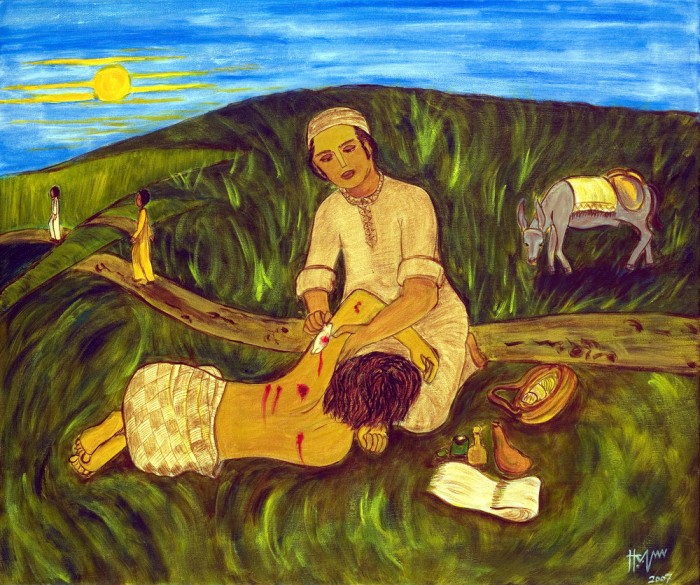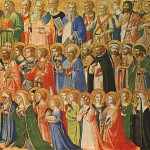The Gospel of Matthew (22: 34-36) presents us with Jesus emerging from another problem presented by the Pharisees: what is the main commandment of the Law? Are the 613 commandments of the Law to be fulfilled or are some more important than others? Jesus doesn’t go off on a tangent either. He repeats “listen Israel” that comes from Deuteronomy 6:5: You shall love the Lord with all your heart. This is the first and greatest commandment. So far there is no novelty. The novelty is in what follows. Join to this commandment is what Leviticus 19:18 says about another love, “You shall love your neighbor as yourself”. The novelty consists in raising this commandment to the same level as the “greatest and principle” by uniting them by a word “like”.Similarly as that which exists between God and his creature, man. In other words, the genesis of this love of neighbor is in the same love for God. They are absolutely inseparable. One generates the other. The first generates the second with vital necessity, in such a way that if the second does not occur, the first is false. No one loves God if he does not love his brother. This is the greatest novelty. For the believer both loves are inseparable.
Furthermore, Jesus adds that “On these two commandments hang all the Law and the Prophets.” “They hang”. These commandments give the “weight,” the consistency, the meaning, the foundation to the being of my existence. Only from there can we build something that is worthwhile, something with a future, something with permanent value, something that reaches fraternity, equality, the freedom of every man, of our society, of our history, and of our world.
It would be good to review our values scale and how we combine the three loves in our lives: God, our neighbour, and ourselves. I sincerely believe that they work quite distorted – in favor of “ourselves” – giving rise to a selfish and egocentric society, an individualistic and hedonistic society, a classist and oppressive society, a nihilistic society, skeptical where it seems that in the end everything does not matter, or there are no greater or better values than others. We forget the “weight”, the foundation.
Pope Francis builds the “Fratelli Tutti” using the parable of the “Good Samaritan” that Jesus used to explain “Who is our neighbor?” regarding the answer of today’s Gospel. The second chapter of the encyclical “A stranger on the road” is a beautiful commentary for today. Among other things, it says: “The fact of believing in God and worshipping him does not guarantee to live as it pleases God”. “There are ways of living the faith that facilitate the opening of the heart to brothers, and that will be guarantee of an authentic opening to God.” There is a paradox that sometimes those who say they do not believe in God can live God’s will better than those who believe. For Christians, the words of Jesus imply recongnize the same Christ in every brother who is abandoned or excluded.
An invitation: Look at Jesus Christ crucified. Therein lies the synthesis of humanism. Thereinlies the synthesis of the three loves. Therein lies the source of Life and Salvation.
That is the Jesus we proclaim. And we must proclaim him with our lives alongside the marginalized and the poor, meaning that those poor and marginalized are loved by God. Much more: they are the face of God in our midst. They are a “theological place”.





